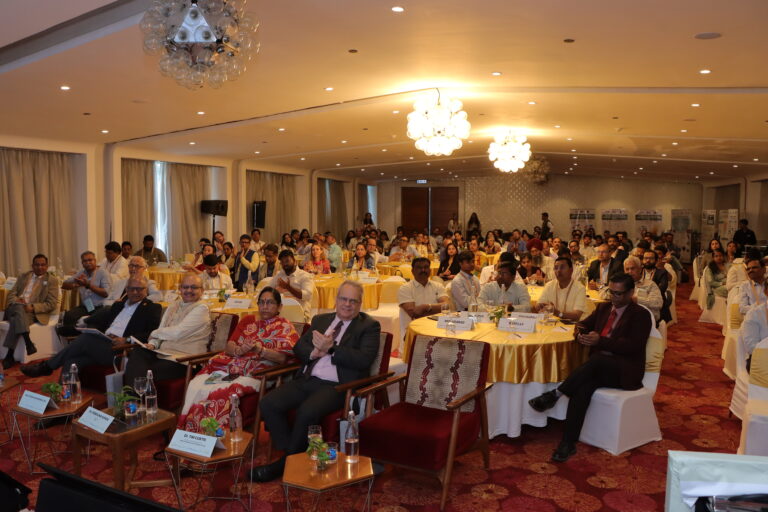Government of India
Government of India

Symposium on Multi-Dimensional Approaches for Integrated Urban Water Management in India
- 15th to 17th May, 2025

About the Event
Day 2 shifted focus to Nature-based Solutions (NbS) as an essential pathway to urban water resilience. Dr. Uday Bhonde introduced the concept through Bhubaneswar’s NbS initiative, supported by the Global EbA Fund, demonstrating the city’s strategy to address water challenges. Ms. Jyoti Verma discussed the city’s NbS plan for mitigating urban flooding, offering a sustainable complement to conventional grey infrastructure. A hands-on workshop on the “Decode NbS” tool, led by Mr. Saurabh Bhardwaj and Ms. Deepshikha Sinha, allowed participants to explore nature-based interventions using the digital platform. The day concluded with a powerful panel discussion moderated by Mr. Rajiv Ranjan Mishra, featuring leading voices in the field — Mr. S. Vishwanath, Dr. Kalpana Khurana, Ms. Manushi Ashok Jain, and Mr. Suresh Babu — who presented successful NbS initiatives such as the Sponge Park in Chennai, the Million Wells Campaign in Bengaluru, eco-sensitive Yamuna riverfront development in Delhi, and wetland restoration in Moradabad.
On Day 3, participants visited the Asita East Biodiversity Park along the Yamuna River in Delhi for a hands-on experience of a nature-based solution in action. The site visit offered valuable insights into how ecological restoration and green infrastructure can improve urban flood management, enhance biodiversity, and create community-friendly spaces. Seeing an operational NbS on the ground brought the discussions of the previous days to life, reinforcing the value of integrating nature into urban water planning.
Across all three days, the symposium blended knowledge-sharing, interactive tools, real-world case studies, and on-site learning to emphasise the urgent need for integrated, inclusive, and innovative approaches to urban water management in India.
Key Speakers

Add Your Heading
Add Your Heading

Add Your Heading
Add Your Heading

Add Your Heading
Add Your Heading



